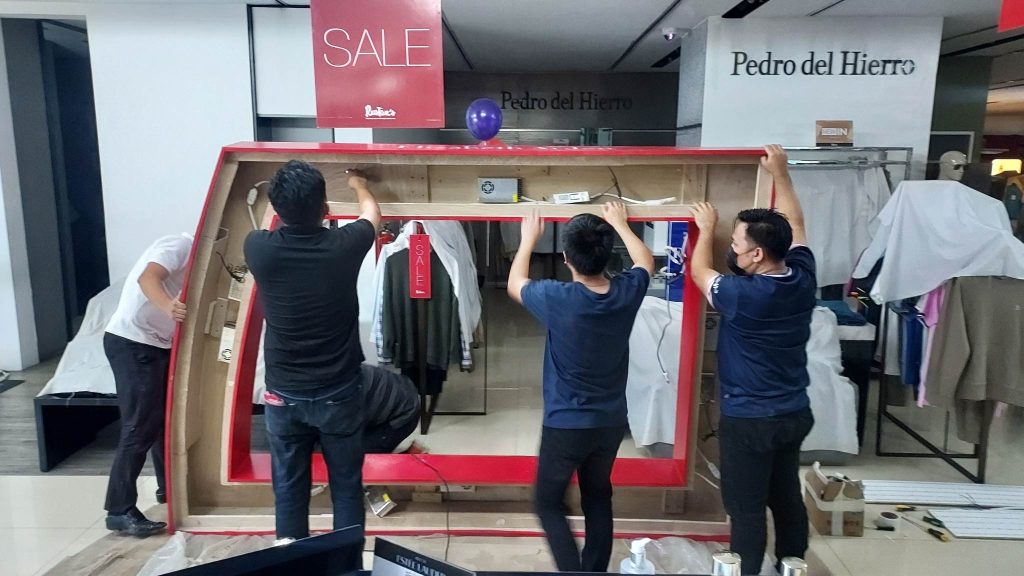Retail business is one of the biggest business sectors in Asia, with hundreds of thousands of brick-and-mortar retail stores located all over the country. All that real estate requires regular store maintenance to keep the premises physically sound and functional for shoppers and employees alike.
As a retail store owner, the last thing you want is daily complaints about maintenance-related matters, especially when those complaints could have easily been avoided. If left unchecked, these “little” maintenance issues can turn into an operational disaster.
What is retail store maintenance?
Retail store maintenance refers to a wide range of strategically planned maintenance activities aimed at keeping your store’s infrastructure safe and functional.
Store maintenance services can vary depending on the size of the building and the complexity of the physical assets owned. For instance, a large multi-story department store will have different requirements compared to a small family-owned shop.
Whatever the case, the more common store maintenance tasks include:
- General cleaning/janitorial services
- Parking lot upkeep
- Installation of new display materials
- Refrigerators and freezer repairs and servicing
- Water treatment and supply services
- CCTV installations and physical access control
- HVAC maintenance
- Waste management (refuse collection, disposal, and recycling),
- Electrical systems maintenance (fuse boxes, control panels, light fittings, emergency lighting, lighted signage, etc.)
- Store equipment servicing and repair (manual or automated cash registers, self-service kiosks, etc.)
- Commercial backup generator servicing and repairs
… and more.
Now that we have considered the details of store maintenance, it probably sounds like a lot of work. It is. However, it is an important part of store success and it can be streamlined by using the right tools and following best practices.

How maintenance impacts retail stores
As the popular saying goes, prevention is better than a cure. Stores, like any other business that owns considerable physical assets, will operate more smoothly with a proactive maintenance approach.
Types of retail store maintenance jobs
To get all this work done, you’re going to need an efficient and well-organized maintenance department. The composition of your maintenance team will be largely influenced by the size of your building and the types of physical assets that need to be taken care of.
In most cases, your requirements will match other commercial buildings – a balanced mix of technical and non-technical workers.
A. Technical Worker
These are the workers who handle maintenance at the planning and execution levels, along with all the standard processes and procedures involved in facility management. The work that they do helps to improve asset reliability and reduces the risks of operational issues and equipment downtime.
To mention just a few, some of these positions include:
- Maintenance supervisors: They plan and assign work, then coordinate the rest of the team on a daily basis.
- Maintenance technicians: Their specializations can range from plumbing to different kinds of electrical and mechanical work. They will usually work directly on equipment, carrying out installations, repairs, and servicing.
B. Non – Technical Worker
These workers are no less important than technical workers. They support the technical staff and work hand-in-hand with them to ensure that departmental goals are fulfilled. Some of these roles include:
- Spare parts storekeepers: They purchase inventory items, track and manage the maintenance inventory, and generate reports when required.
- Janitorial staff: They keep the entire store clean by sweeping, vacuuming, mopping, disinfecting, etc.
Note that the above positions are what is expected in a small to medium-scale retail store. For larger multinational retail chains and department stores, the maintenance department would be large enough to include positions like the facility manager and maintenance director.


Recent Comments